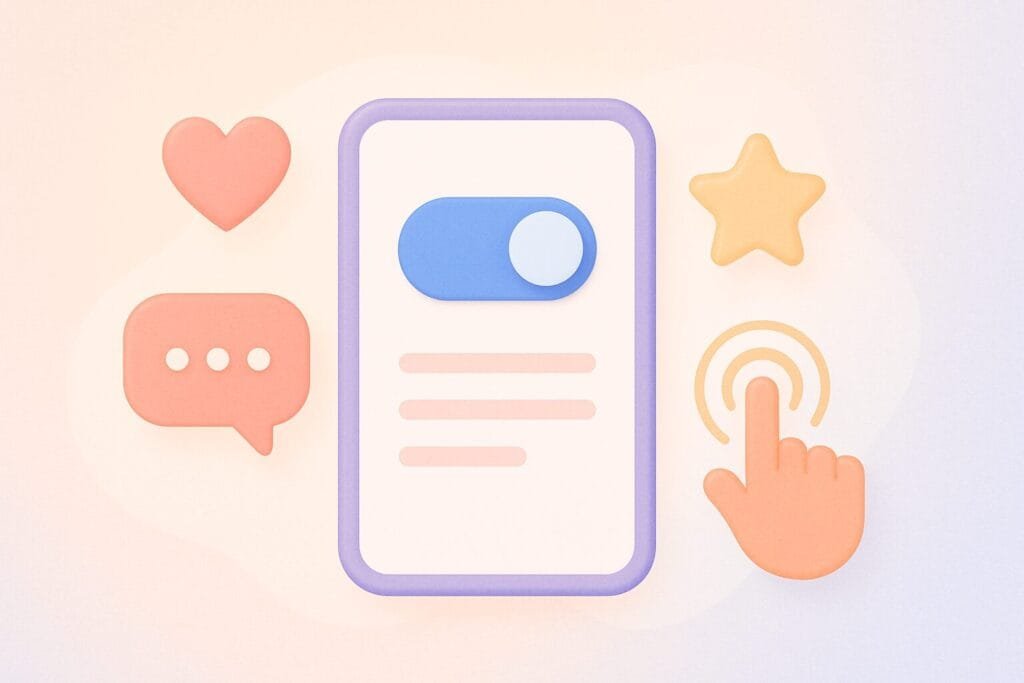In mobile and web applications, user experience (UX) is not only defined by big design elements but also by small, subtle interactions known as microinteractions. These are the little moments that add delight and functionality, like the animation when you like a post, or the vibration feedback when you pull to refresh. Though small in size, microinteractions carry big weight in improving usability, feedback, and user satisfaction.
What Are Microinteractions?
Microinteractions are brief design elements that help users accomplish a single task — for example, toggling a setting, receiving a notification, or seeing a loading animation. These interactions create feedback loops, communicate status, and make digital experiences feel more human.

Why They Matter in App UX
Microinteractions can make or break the overall experience. They create emotional engagement, reduce friction, and help users feel in control. Without them, apps can feel lifeless or confusing. By guiding users intuitively, they help reduce learning curves and increase app retention.
Benefits of Microinteractions
Here’s a comparison table that outlines the difference between apps with and without microinteractions:
| Feature | With Microinteractions | Without Microinteractions |
|---|---|---|
| User Feedback | Immediate, engaging | Unclear, delayed |
| Emotional Connection | Strong, memorable | Weak, forgettable |
| Navigation Flow | Intuitive and guided | Often confusing or flat |
| Visual Appeal | High, dynamic | Static and bland |
Implementation Tips
Designers should implement microinteractions where user input, system feedback, and transitions occur. The key is balance—too many can overwhelm, while too few can make an app feel robotic. Use tools like Framer Motion for smooth and modern animation in UI.
In conclusion, while microinteractions may seem insignificant, they significantly influence how users perceive and interact with your app. These small design choices build intuitive, elegant, and engaging digital experiences.

